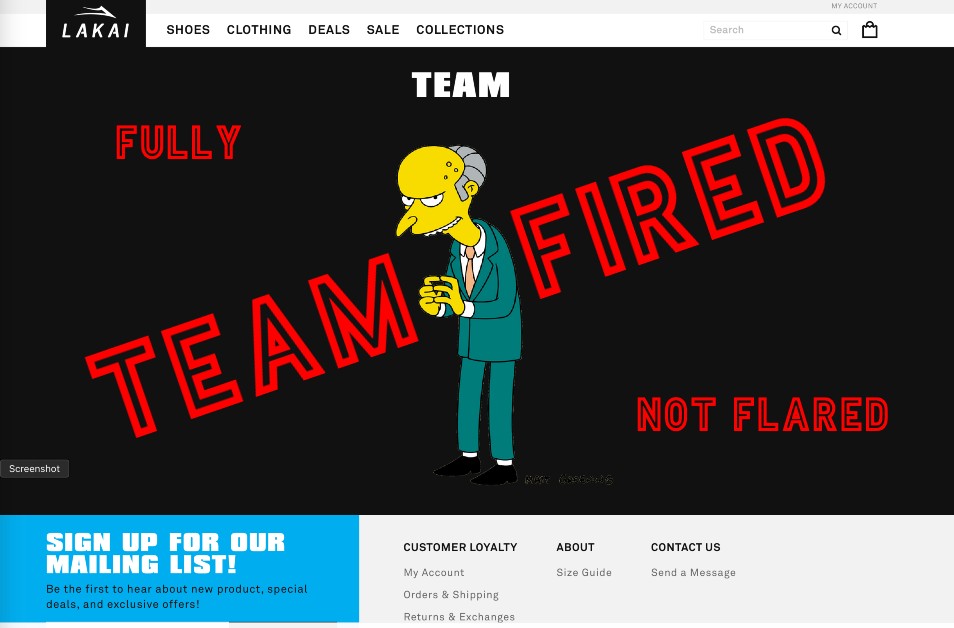Lakai: From ‘Or Die’ to ‘Or Buy Direct’
“Lakai or Die” was once the rallying cry of core skateboarders—a sentiment that captured the thrill of picking up a new pair of Lakais from the local skate shop, the satisfaction of breaking them in, and the pride in skating them to shreds. But that ritual is beginning to feel like a relic of the past.
In a shocking turn, Lakai’s new corporate ownership has dismissed the brand’s skate team, management, sales reps, and office staff, signaling a complete shift to a direct-to-consumer model. As the news spreads, it raises questions about what this means for the brand’s identity and its connection to skate culture.
From Core Skate Brand to Corporate Machine?
Founded in 1999 by pro skateboarders Mike Carroll and Rick Howard, Lakai was born out of skateboarding culture. Leaving DC Shoes, Carroll and Howard partnered with Tim Gavin at Podium Distribution to create a brand built by skaters, for skaters. Named after a friend’s child, Malakai, Lakai quickly became known for its attention to design, functionality, and quality—qualities that resonated with skateboarders worldwide.
This recent decision marks a sharp turn from Lakai’s roots. By shifting focus from skate shops to direct-to-consumer sales, the new owners are bypassing the very community that helped build the brand. This isn’t just a business decision; it’s a redefinition of the company’s values.
The Decline of the Local Skate Shop
Lakai’s move is part of a growing trend in retail. Brands increasingly sidestep traditional retail partners to sell directly to consumers, potentially improving profit margins but at a steep cost to local shops. Skate shops aren’t just retailers—they’re the beating heart of the skate community. They provide spaces for skaters to meet, share stories, and connect. They also bolster local economies by creating jobs and supporting other businesses.
As brands like Lakai go direct, local skate shops face fierce competition from lower online prices and wider selections. This shift threatens to decrease foot traffic, reduce sales, and ultimately close down these crucial community spaces.
For skateboarders, this could mean the loss of something irreplaceable: fewer places to gather, fewer spots to swap stories, and fewer resources for the next generation of skaters. Once local shops start closing, those connections won’t easily be rebuilt.
What Do Skateboarders Really Want?
This move challenges skateboarders to think about the future they want to support. Will they embrace a Lakai without the team, the reps, and the community roots that once defined it? Or will they push back on direct-to-consumer models and continue to support their local shops, choosing to buy from spaces that foster the skate culture they love?
As consumers, we hold the power to shape the future of skateboarding. By supporting local shops and smaller, community-focused brands, we can help preserve the core of skate culture. The question is, are we willing to make that choice, or will we continue to be wooed by multi-million dollar marketing campaigns and the convenience of online shopping?
Let’s not let “Lakai or Die” lead to the death of our local skate shops. The future of skateboarding is up to us—where will you click next?
Leave a comment and let me know how you feel about this latest trend in retail.
Grab the last of our Lakai Footwear collection before it’s gone! Use CODE: fattytoflatty for $5 flat-rate shipping on orders over $50.
Shop 👉 HERE for visitors or stop by the shop in Downtown Pocatello.
